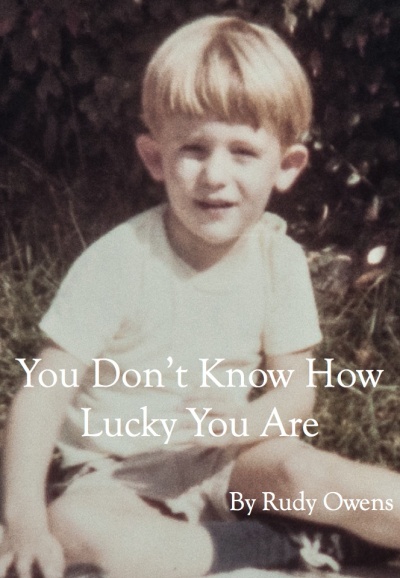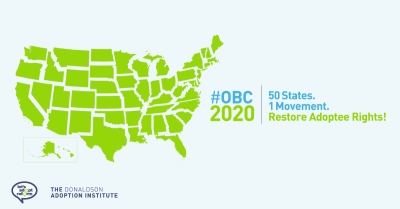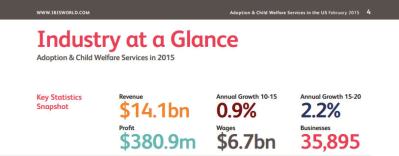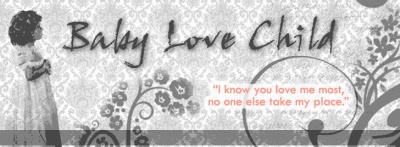
This article is a response to a recent newsletter flash I received from the adoption research and advocacy group called the Donaldson Adoption Institute (DAI). The organization has suddenly proclaimed a bold new advocacy position and campaign on adoptee rights as a “human rights” issue.
I will make three key points about this new effort and how adoptees, the media, policy-makers, and supporters of adoptee rights should cautiously view this and all other efforts by groups who claim to promote legal rights for adopted persons, illegitimately born people, and people who call themselves bastards:
- The institute’s new campaign seeking to become the champion of “human rights” for adoptees seeking their birth records must be viewed critically given the group’s track record and the way it is linked to the promotion of what some adoptees and reporters like Dan Rather call the “adoption industry.”
- Authentic advocacy and scholarship on adoptee rights or any issue involves “walking the talk” and having what ordinary folks call “street cred.” For example, Florence Fisher, and the group she lead in the 1970s called the Adoptees’ Liberty Movement Association (ALMA), showed that when ALMA took a clear stand for adoptees by calling for the “free access to our original birth certificates and the records of our adoption” and went to court in New York in 1977 with a federal class action lawsuit, claiming adoptees had rights under the U.S. Constitution’s 13th and 14th amendments to their original birth records. They lost but their actions spoke volumes. You have to demonstrate what you believe through meaningful action, not fluffy words of cute social media memes.

- My work in my upcoming book on my adoption experience and how U.S. adoption should be understood through a public health lens gives full credit to insightful writers and advocates, like Lauren Sabina Kneisly, who clearly define the real power systems involved in adoption and the political realities of being an adoptee and bastard. Real advocates and credible scholars acknowledge their sources and forebears. Those who only seek influence or power in any field will try to co-opt the work of real reformers.
Why I am Troubled by Donaldson Adoption Institute’s Co-opting of Adoptee Claims to Human Rights

My forthcoming memoir on the U.S. adoption experience makes clear I will not and do not appropriate or claim ownership of many breakthrough actions and ideas in the long struggle of adoptees to have equal rights of non-adopted people in the United States.
I praise and quote scholars like professors E. Wayne Carp and Elizabeth Samuels, who have documented how adoptees’ and birth parents’ legal access to original birth records was severely restricted by state legislatures and public health bureaucracies in the decades after World War II. (Also see my post on the topic of discrimination against adoptees.)
To ensure accuracy and authenticity with my readers, I give each and every parent, writer, activist, scholar, organization, and leader full credit for their contributions to changing current practices and thinking. I do that to acknowledge who has meaningfully contributed to our understanding of adoption as a political, health, public health, historic, sociological, biological, and advocacy issue.
I also seek to steer policy-makers, adoptees, and the media to credible and relevant data to correctly frame adoption as a human rights, public health, and legal issue. That is also called responsible scholarship and “walking the talk” in the advocacy arena.
Donaldson Adoption Institute’s Status on Adoptee Rights
One group I continue to have trouble with concerning legal advocacy is the Donaldson Adoption Institute (DAI). The New York-based group has published research by scholars on adoption. I cite some of their work in my book. I appreciate how they cited the health issues associated with denying adoptees their family history and a 2016 study on public perceptions of adoptees and adoption. I like that the group supports openness in adoption, but I am very troubled by this concept in the context of their work that appears to support adoption without changing laws or formally acknowledging past wrongs.
However, I do not endorse their work to date as being clear, mission-driven advocacy that seeks to address historic discrimination against adoptees or work that seeks to change laws to promote equality for all adoptees by giving every single living adoptee full and unfettered access to their records–as done in most developed nations.
I say this despite the group’s sudden new commitment under a questionable logo: “50 States. 1 Movement. Restore Adoptee Rights!” The group announced this publicly on May 17, 2017, through an email “special communication.”

I have yet to find in the institute’s work or website if the group acknowledges how other countries (England, Scotland, France, Germany, Denmark, Iceland, Norway, Sweden, Finland, Israel, Netherlands, Australia, New Zealand, and Norway) have clear national laws that establish all adoptees’ legal right to their birth records or that the group suggests a policy solution proposal endorsing such an approach. (Please let me know if I missed something.)
The group’s diverse interests include topics like “promoting healthy identity formation in adoption,” transnational and biracial adoption issues, adoption by gay parents, and even counseling issues. While I find some of this work worthwhile for some groups, particularly transnational and bi-racial adoptees and their families, I am unconvinced still by what I see right now that the DAI can or ever will be a leader in fighting for real adoptee civil rights.
The group as recently as mid-2016 was working on another campaign (“transacton to transformation“), also with a catchy social media title, that urged changing adoption “to a more uniform and transformational process where everyone—expectant parents, first/birth parents, adopted persons and adoptive families and professionals—are better prepared and supported.” This in no way resembles a campaign focussed on ending discrimination against adoptees or challenging the real power structures who promote those views and profit by them. In many ways, this campaign is a contradiction to its newest effort that seemingly appropriates the concept of adoptee rights as “human rights.”
Grading Those Who Work in Adoptee Advocacy

The DAI claims its board has “adoption professionals, academics, adopted people, adoptive parents, first/birth parents, business leaders and other people concerned about adoption.” For any adoptee, the word “adoption professional” should be a hot red flag, because it includes perspectives of the multi-billion-dollar and global adoption industry and professions like social work, which still teaches adoption as a form of possible pathology.
Any group that seeks to sustain this industry should not be a leader in promoting meaningful change. Actual change can be seen in the Australian adoption reconciliation efforts, where the national government formally apologized in 2013 to all birth mothers and adoptees for causing harm. The DAI does not recognize in a formal way this historic action as a solution—yet another red flag for me.
The DAI’s mission statement—not even clearly called out on its website—is also muddled and does not clearly state its top goal is a lasting legal remedy and equality for adoptees by law: “The Donaldson Adoption Institute’s mission is to provide leadership that improves laws, policies and practices—through sound research, education and advocacy—in order to better the lives of everyone touched by adoption.” That is not a mission to change laws or change how adoption is understood as a political system, now sustained and promoted by the Republican Party, evangelical Christians, and groups that profit from adoption as a business.
Now the DAI calls for a national campaign—not coincidentally one it states that it wants to lead. Its announcement tries to claim the mantle of unnamed reformers from the 1970s. Key advocates in legal reform from that era such as Florence Fisher did not entangle themselves in the “business of adoption.” Quite simply, the DAI lacks street cred to lead as measured by its own actions and deeds.
Because of this, I strongly suggest that all adoptees and advocates for adoption hit the pause button and determine for themselves if they wish to do the group’s online survey, now organized to support this effort. This appears to be a power grab on advocacy in the often petty and often frustrating world of advocacy among a mostly powerless group—adoptees.
Who Is “Entitled” to Claim Leadership on Adoptee Legal Rights?
Suddenly, the DAI is using the overarching policy goal of the adoptee advocacy group Bastard Nation, whose mission statement boldly calls for “the civil and human rights of adult citizens who were adopted as children.” For the record, I am not a member of any adoptee advocacy group, and I do not know anyone in Bastard Nation in person.
The DAI now claims: “The tangible negative consequences of denying adopted people their OBC are numerous and sobering. Yet the most severe outcome rests in the fact that a fundamental human right is being denied to an entire group of people.”
What’s more, the DAI has suddenly made statements and language never used before regarding the laws that deny adoptees equal treatment under the law and their birth records. “This is a human rights violation that creates inequality for an entire group of people,” the group writes. “Everyone should have the right to know the truth of his or her birth.”

This is great language, but I am deeply worried such views are not sustainable by a group that is so deeply embedded in a system where groups can make $30,000 or more promoting adoption. The sale of babies to adoption farms that lead to horrific infant death outcomes of bastard babies in the early 1900s in Baltimore is a warning of the dangers of turning infants into sellable commodities. Adoptee rights advocates should distance themselves entirely from anyone associated with this practice for historic and policy reasons alone, not to mention moral concerns.
My Communications with the Donaldson Adoption Institute

I am more troubled that the DAI is using language by groups like Bastard Nation and others. I also am confused that the group’s language strangely resembles legal arguments I shared with them in February and March 2016 by email. I wrote to the group then to ask them to define their advocacy views on the concept of adoptees’ rights to their records as a legal issue and as a human right, similar to how it is enshrined in the U.N. Declaration of Human Rights.
The organization wrote me back saying, “DAI believes that an adopted persons right to access their original birth certificate is fundamentally a civil and human rights issue.” However, the DAI did not make its messaging pivot until this new campaign was launched this week. (Please see my summary of my email exchanges with the DAI and the passages of my work I published on my book website in December 2016 and policy blog in January 2016.)
(Author’s Note: My goal as I write this post is to forward this post to the DAI and ask if they wish to issue any rebuttal commentary as the form of a response on my blog, which I will publish in the spirit of promoting a vigorous public discussion of adoptee and legal rights issues.)
As of today, May 20, 2017, the DAI has not credited any group or scholar in its new campaign to become the lead group. This is not required, but its failure to acknowledge by name the groups and persons who have laid out the data and legal case for a human rights campaign for adoptees should be a red flag to all persons who believe the United States should have an identical national law like England granting all adoptees full rights to their birth records at the age of 18.
My Indebtedness to Adoptee Advocates and Words of Wisdom on Adoptee Rights Advocacy

In writing my book on the American Adoption experience, I encountered several leaders for adoptee rights who shared nearly identical views with me on the complex perspectives of the institution of adoption, the discriminatory treatment of adoptees and bastards, and the failure of current so-called advocacy groups to provide meaningful leadership to frame adoption as a legal and human rights issue that harms adoptees.
One fellow adoptee and writer I feel most aligned to is Lauren Sabina Kneisly. Her blog, Baby Love Child, appears to be on hiatus, but it provides a superb primer on how to decipher messaging on adoptee rights advocacy.
Her blog does not endorse any group, but acknowledges the work of groups like Bastard Nation.
Kneisly wisely urges adoptees and their supporters to be mindful of the words used by groups and advocates. In other words, don’t fall for astroturfing or greenwashing, which co-opt the words, emotions, and ideas of real reformers by those who seek to profit from the status quo and who may actually not want change at all.
Usually the proof is in both the words and also the deeds, and greenwashing can be very slick. If it’s good, and it often is by such sales personnel, your emotions will be exploited without your conscious awareness.
Therefore, consider Kneisly’s recommendation for judging street cred and moral legitimacy for adoptee advocacy groups. She suggests these criteria:
- Do they understand their status as part of a broader class of people and refuse to leave others behind?
- Do they have a clear and single-minded focus on the real goal—equity for adoptees?
- Do they reject substitutions, distractions, or attempts to divide and conquer that maintain state control and deflect from the goal of equality?
- Do they identify who holds real power and what their conflicts of interest are?
- Do they only settle for full equality for all those denied access in an inequitable manner?
Remember, as with all things in the real-world of politics and advocacy, trust your gut and disregard any marketing promise that sounds too good to be true, because it often isn’t.
Finally, if you want an example of clearly stated goals towards a policy objective, visit the Adoptee Rights Law Center, maintained by lawyer, adoptee, and activist Gregory Luce of Minnesota. I think he is doing great work to change the national discussion with facts, provide timely and accurate information, and support adoptee rights as a human right.
If you know of a group you like, send me a note. I would love to hear from you and share that on my website for my new book.
[Editor’s Note, Jan. 5, 2018: As of Jan. 4, 2018, the Donaldson Adoption Institute has announced it is closing. Lack of funding likely contributed to its demise. Its research will still be accessible online, according to its most recent public statement. Adoptee rights advocates will now need to fill a void when media cover the issue. Reporters seeking soundbites often turned to this group. True adoptee rights advocates need to insert themselves into the national conversation.]
A friend pointed your post out to me this morning. I was rather surprised by your kind words actually, so thank you for that.
I’ve written extensively about the Donaldson Institute’s efforts to co-opt Bastards and our activism over the years, particularly their co-optation of the human rights framework some of us were working on, and saw deliberately undermined by the adoption industry through their work on the UN Convention on the Rights of the Child. For those interested in the history, my pieces and those of my partner, Mike Doughney about the Evan B. Donaldson Institute can be found by searching my blogsite.
In the end, despite all rhetoric to the contrary, the Donaldson Institute must be judged on its actual actions, and it has repeatedly supported and testified in support of legislation that stood poised to, or succeeded in leaving Bastards behind.
My blog is indeed on hiatus primarily for two reasons:
1. I’ve already said much of what I needed to say. One can only write and rewrite and write yet again the ongoing pattern of kids adopted, abused, homeschooled (and thus become less likely for anyone to be keeping an eye on), and finally murdered by their adopters in spasms of rage and abuse. It is difficult to cover and write about on and on and on, all while coming to the realization that few people outside the adoption realm even care, let alone are willing to talk about doing anything to create actual change that might protect Bastards’ lives. With the rise of the re-homing networks and at times deadly quack psuedo-scientific “attachment therapy” industry, which shares roots and personal overlaps with the anti-Queer religiously based “conversion therapies”, the consequences to individual Bastards, particularly as minors have become far worse than when I first began blogging.
& 2. I now have access to my (wildly incomplete) original paperwork and that puts me in a very different place than I was as one of those previously black-holed in relation to our authentic records. The entire landscape of adoptee activism has changed from people who brought backgrounds and skills from civil rights, feminism, and Queer rights struggles to a landscape of inexperienced and often uninterested in learning any history self professed ‘activists’ who are focused upon ‘getting theirs’ or ‘finding their mommy’ as opposed to class Bastard based work and solutions and any form of a broader human rights framework. Into that chasm walk industry tied organizations like the Donaldson to go pick up those ‘tools’ that many adoptees left lying on the ground. Working in a context wherein acceptance of placating table scraps has become the norm has made authentic Bastard activism all but impossible. Unless and until that climate changes, our legislative outcomes will continue to grow ever worse.
All of which is to say the Bastard landscape, outlook, and activism itself in 2017 is fundamentally different than when I first began blogging back in 2007.
Again, thanks.
***
(One last minor note, It’s “Sabina” not “Sabrina”, no “r.”)
-Sabina
Sabina: I apologize for getting your name spelled wrong. I have done this before with Sabrina/Sabina. No excuses. I have fixed the error.
For the record, I am quoting your work in my forthcoming book, You Don’t Know How Lucky You Are, specifically in my chapter called “Adoption Narcissism” (http://www.howluckyuare.com/chapter-14-adoption-narcissism/), which gets at some of issues you define very well in point #2 above.
I will be making another post shortly about your writing on my http://www.howluckyuare.com website about your key insights. I came to many of the same conclusions without any knowledge of you or your excellent work in this area. I think it is critical to acknowledge who has laid the foundation for “awareness.” My book makes the case that the political landscape is actually getting more problematic for anyone who believes adoptees are deserving of equal rights under the law. Kathryn Joyce’s excellent writing on this topic has made this case very well.
Hi Rudy. Could you email me directly? I didn’t get the note that you said you sent to me via my website the Baby Scoop Era. Karenwb2@Verizon.net
Lauren, I would like to send an email/request to you. Can you contact me by email via my contact page? Concerns my forthcoming book/favor to ask. Thanks. http://www.rudyowens.com/contact/